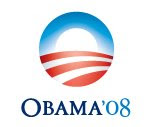
When I first wanted to read Nathanael West, on Diana's recommendation, I figured I'd buy the cheapest publication I could find. That was the New Directions edition with Miss Lonelyhearts and The Day of the Locust in one volume (above, on the right). Once I read those two, and then the second collection, which contains his other two novels, A Cool Million and The Dream Life of Balso Snell, I decided West is my hero and I wanted to read everything he wrote. So I bought the Library of America edition (above left) of his complete works. Now I have those four novels, notes about those novels, some screenplays, some short pieces, and some letters. I have yet to really delve into the other material, but I'm excited about "Some Notes on Miss L.," his thoughts on Miss Lonelyhearts (duh) after he wrote it, about his thoughts as he wrote it.
The best part about having read this novel right after reading Wise Blood is in seeing how the two relate. I'm not sure how direct an influence West or Miss Lonelyhearts had on Ms. Flannery, but the stories are so similar, and their respective treatments of crises of belief so fundamental to the protagonists' actions, I'd be shocked if O'Connor didn't have Miss Lonelyhearts in mind when writing her story.
Both Miss L. and Hazel Motes struggle with their religious faiths. Miss L. has believed, and wants to believe, but his belief has been broken by the letters he gets for his column and by the mocking he withstands from Shrike, his editor. Hazel Motes is the son of a preacher who wants to not believe in God and struggles his whole (short) adult life against faith. In the end, each comes to terms with belief in a series of actions that lead to their earthly destructions. Wise Blood doesn't just seem to me a similar story to Miss Lonelyhearts--it may have been written in response to it, so closely do their concerns (and even some of their imagery) relate.
And when I read these stories they pound the ideas I have for my fiction into a certain shape. I see my concerns in a new light, because they are ultimately the same as West's and O'Connor's. My protagonist isn't concerned with what he believes so much as he is what his purpose is, but that purpose ultimately derives from what he believes. My aesthetics and the central conflict of my story put it in a position to be a response to the dialogue between Miss Lonelyhearts and Wise Blood (even if I'm just imagining it). And I've been split for some time on which project needed my attention more, my novel or my belief book, but I think the dilemma is false. The novel treats the same material the belief book does, only by metaphor. My head is on fire now. I want to ingest Nathanael and Flannery and spit out a new hunk of ragged iron, another stark story of freaks finding their way, of grotesques and misfits.
The last paragraph of West's "Some Notes on Miss L.":. . . Miss Lonelyhearts became the portrait of a priest of our time who has a religious experience. His case is classical and is built on all the cases in James' Varieties of Religious Experience and Starbuck's Psychology of Religion. The psychology is theirs not mine. The imagery is mine. Chapt. I--maladjustment. Chapt. III--the need for taking symbols literally is described through a dream in which a symbol is actually fleshed. Chapt. IV--deadness and disorder; see Lives of Bunyan and Tolstoy. Chapt. VI--self torture by conscious sinning: see life of any saint. And so on.
And just like that, I'm off again. My direction is clear. For at least the next seven minutes.

1 comment:
"I want to ingest Nathanael and Flannery and spit out a new hunk of ragged iron, another stark story of freaks finding their way, of grotesques and misfits."
Yes! I know EXACTLY what you mean!
Post a Comment